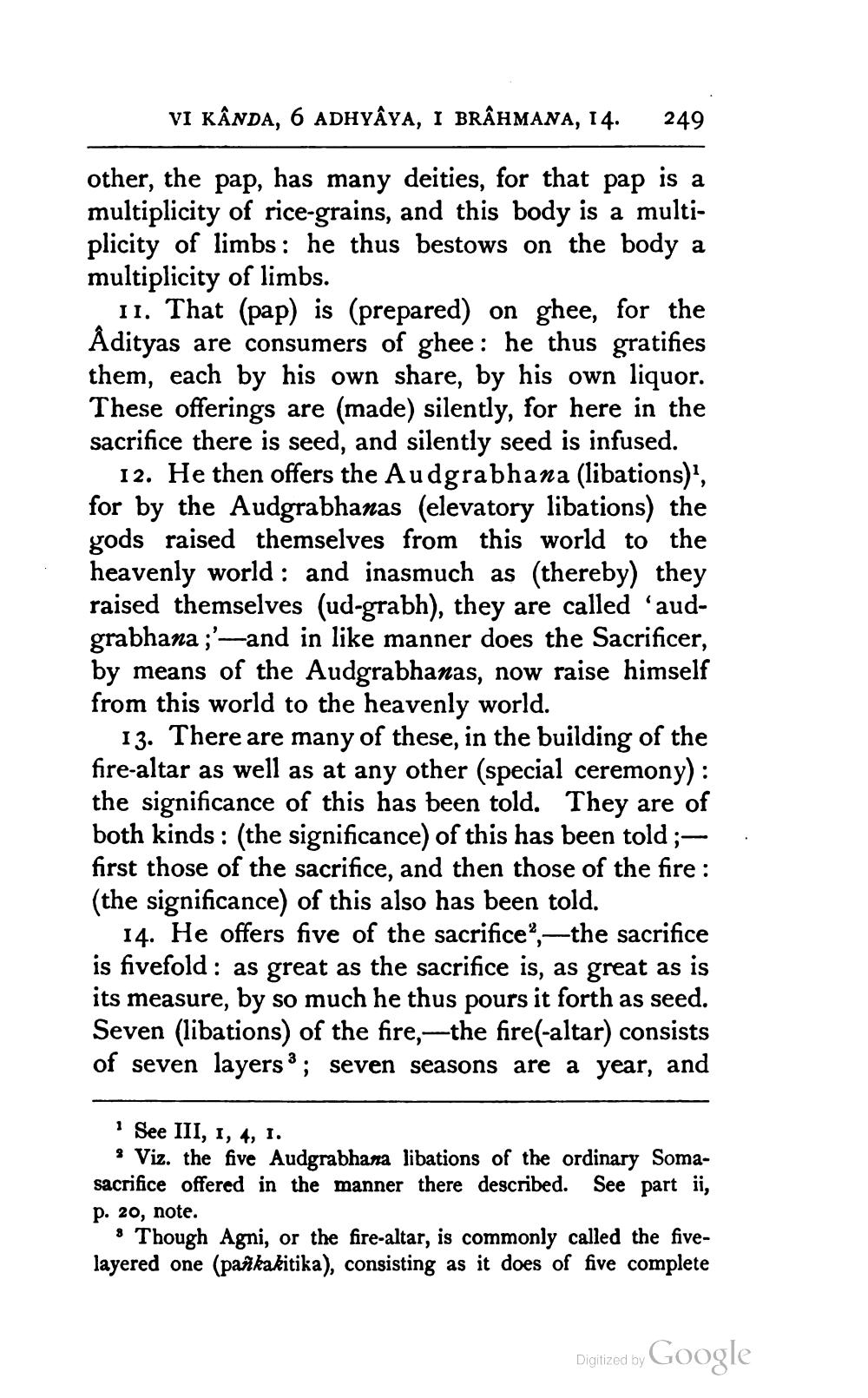________________
VI KÂNDA, 6 ADHYÂYA, I BRÂHMANA, 14.
249
other, the pap, has many deities, for that pap is a multiplicity of rice-grains, and this body is a multiplicity of limbs: he thus bestows on the body a multiplicity of limbs.
11. That (pap) is (prepared) on ghee, for the Ådityas are consumers of ghee: he thus gratifies them, each by his own share, by his own liquor. These offerings are (made) silently, for here in the sacrifice there is seed, and silently seed is infused.
12. He then offers the Audgrabhana (libations)', for by the Audgrabhanas (elevatory libations) the gods raised themselves from this world to the heavenly world : and inasmuch as thereby) they raised themselves (ud-grabh), they are called 'audgrabhana ;'-and in like manner does the Sacrificer, by means of the Audgrabhanas, now raise himself from this world to the heavenly world.
13. There are many of these, in the building of the fire-altar as well as at any other (special ceremony): the significance of this has been told. They are of both kinds : (the significance) of this has been told ;first those of the sacrifice, and then those of the fire: (the significance) of this also has been told.
14. He offers five of the sacrifice",—the sacrifice is fivefold: as great as the sacrifice is, as great as is its measure, by so much he thus pours it forth as seed. Seven (libations) of the fire,—the fire(-altar) consists of seven layers 3 ; seven seasons are a year, and
See III, 1, 4, 1.
Viz. the five Audgrabhana libations of the ordinary Somasacrifice offered in the manner there described. See part ii, p. 20, note.
Though Agni, or the fire-altar, is commonly called the fivelayered one (pankakitika), consisting as it does of five complete
Digitized by Google




